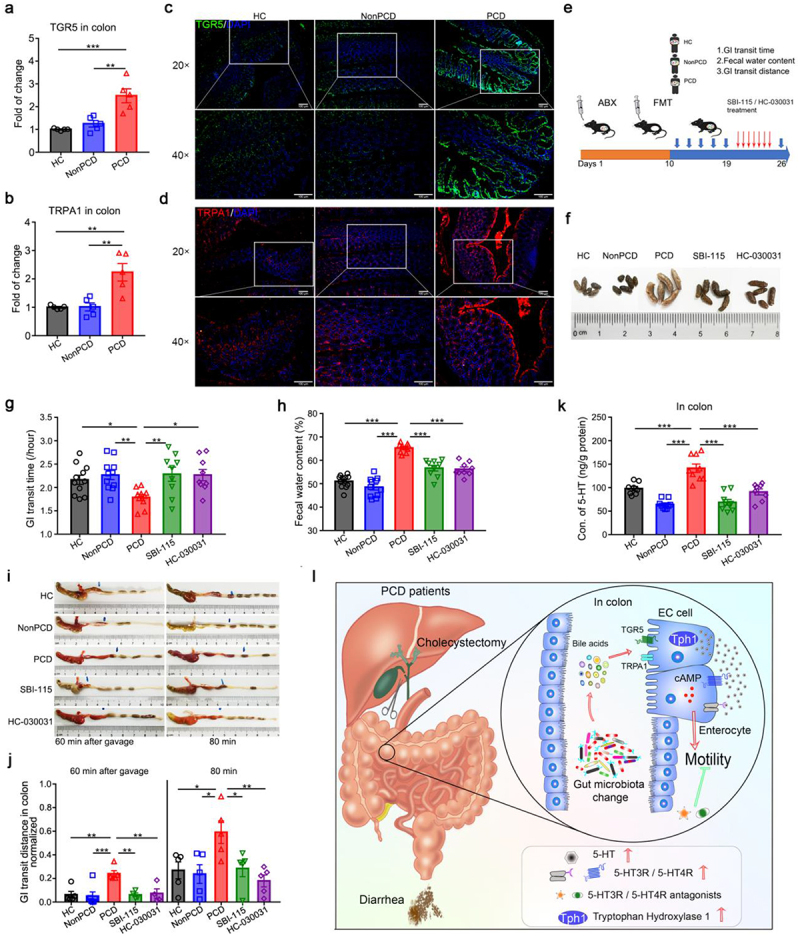Figure 7.

PCD fecal microbiota induce diarrhea via TGR5/TRPA1 signaling pathway. (a, b) Elevated expressions of TGR5 (a) and TRPA1 (b) to β-actin in colon of mice colonized with PCD gut microbiota, n = 5. (c, d) Representative IF photographs of strained TGR5 in green (c) and TRPA1 in red (d) in colon of humanized gut microbiome mice, upper panel scale bar 100 μm and lower panel 50 μm, nucleus were stained with DAPI in blue. (e) Experimental design showing the process of humanized microbiome to pseudo-germ-free mice (n = 10 per group) and SBI-115 (15 mg/kg) and HC-030031 (150 mg/kg) administration: after construction of humanized microbiome mice, these drugs were gavaged to PCD mice daily for consecutive 7 days. (f) Representative photograph displaying fecal appearance in 5 grouped mice (n = 5). (g) Pro-motility effects of PCD microbiota were reversed by TGR5 antagonist (SBI-115) and TRPA1 selective inhibitor (HC-030031), n = 9–11. (h) Elevated fecal water content of PCD mice were lowered by SBI-115 and HC-030031, n = 9–11. (i) Representative photographs of colon displaying the alleviating effects of SBI-115 and HC-030031 on colonic motility. (j) Quantification of normalized colonic motility in 5 grouped mice, n = 4–6. (k) Colonic levels of 5-HT among 5 groups, n = 8–9/group. Data are displayed as mean ± SEM; * p < .05, **p < .01, ***p < .005. (l) Schematic diagram of diarrhea-inducible effects of PCD fecal microbiota. PCD fecal microbiota could induce diarrheal phenotypes mainly through accelerating colonic motility, and overabundant colonic 5-HT level is identified as the critical factor for increased peristalsis due to its excessive biosynthesis and declined reuptake by PCD microbiota. Furthermore, altered BAs metabolites by PCD gut microbiota leads to overproduction of colonic 5-HT via TGR5/TRPA1 signaling pathway. Finally, 5-HT receptors (5-HT3R and 5-HT4R) were found overexpressed and selective blockade of them could significantly ameliorate microbiota-induced diarrhea by corresponding antagonists.
